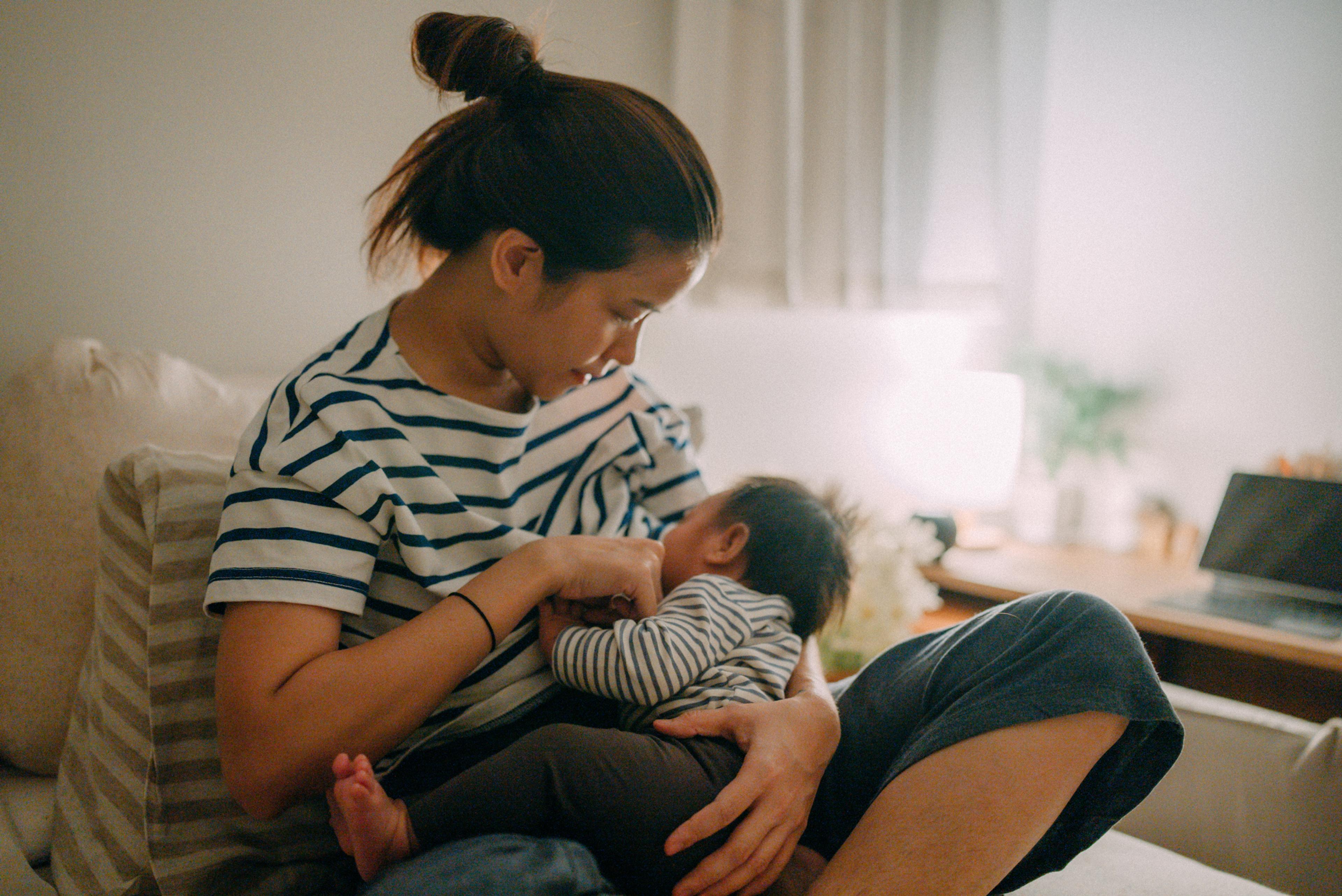
Breast milk is widely acknowledged as the healthiest source of nutrients for newborn babies. Breastfeeding helps build a strong immune system in infants and naturally soothes them. It also helps the mother quickly recover from childbirth while lowering her risk for postpartum depression.
When to stop breastfeeding depends on individual circumstances and preferences. Here are some safety tips to keep in mind.
What is the average age to stop breastfeeding?
The American Academy of Pediatrics (AAP) recommends exclusively feeding infants breast milk for their first six months of life. After the six-month mark, the AAP recommends a combination of breast milk with complementary solid foods for at least two years, until the mother and/or baby decide nursing no longer suits them. Previous AAP guidelines called for nursing until age 1, but new 2022 guidelines were formed based on newer research that found human milk to have benefits long after a child’s first birthday.
Common reasons to stop breastfeeding
According to the Centers for Disease Control and Prevention (CDC), 60% of mothers do not breastfeed for as long as they intend. The duration of breastfeeding can be influenced by many internal and external factors such as:
- Concerns about infant nutrition and weight
- Concerns about taking medications or dealing with a medical condition while breastfeeding
- Cultural norms and lack of family support
- Issues with lactation and latching
- Return to work/lack of parental leave
Weaning tips and how to stop breastfeeding naturally
Weaning is when a baby transitions from breastfeeding to other sources of nourishment, such as cow’s milk, an alternative milk and/or food. Weaning happens both for nutritional reasons and to help the baby adjust to change. Some women choose to wean around their baby’s first birthday, as the child starts to walk, talk and eat solid food more often.
Completion of the weaning process can take anywhere from a few weeks to multiple months. When weaning a child age 1 or older, the CDC recommends giving them plain whole cow’s milk or fortified, unsweetened soy beverage in place of breast milk. The CDC states that the child does not need infant formula or toddler milks, drinks or formula.
Weaning can be done very gradually. One tip is to use a bottle to replace a nursing session once every few days before slowly increasing how often a bottle is used in place of breastfeeding. From there, mothers can go from using a bottle once a day to twice a day and so on.
How to stop breastfeeding fast
Although, a several-week period is recommended to avoid negative side effects for the mother and the baby. Women who have to stop breastfeeding sooner than they’d like can consider a few options.
You can start by dropping either the most inconvenient feeding or the one your baby is least interested in. You can also try to hand express or use a hand pump to relieve fullness until you feel more comfortable. Avoid emptying your breasts so you do not trigger an increase in milk supply. This method not only eases fullness and discomfort, it can prevent mastitis. Mothers should not feed expressed milk to their baby if there is a medical reason to stop breastfeeding.
These tips from WebMD can help your baby feel more secure and less upset by the loss of breastfeeding. They can be especially helpful when breastfeeding must be stopped abruptly.
- Coo at your baby
- Cuddle your baby often
- Keep your baby close to you
- Make eye contact with your baby
Remember that being diagnosed with a medical condition or starting a new medication does not mean breastfeeding is unsafe for you and your child. Talk to your primary care provider (PCP) about your specific health profile to determine if breastfeeding is right for you and your baby. Additionally, your PCP can discuss the best route to take to reduce milk production if you need to dry up your milk supply quickly.
Photo credit: Getty Images
Read on:
- What is the Difference Between a Pediatrician and Family Doctor?
- How Hot Weather Affects Chronic Conditions
- Understanding the Effects of Manifestation on Wellbeing





